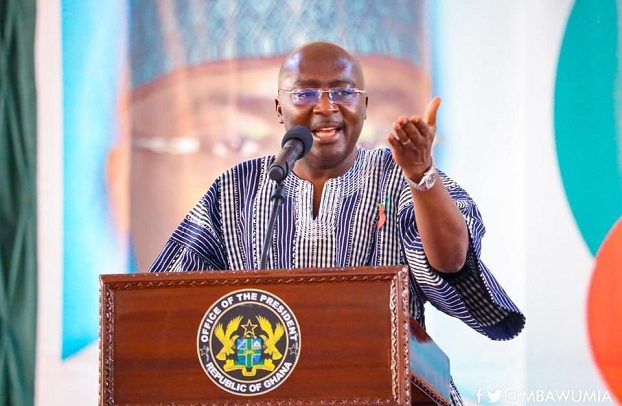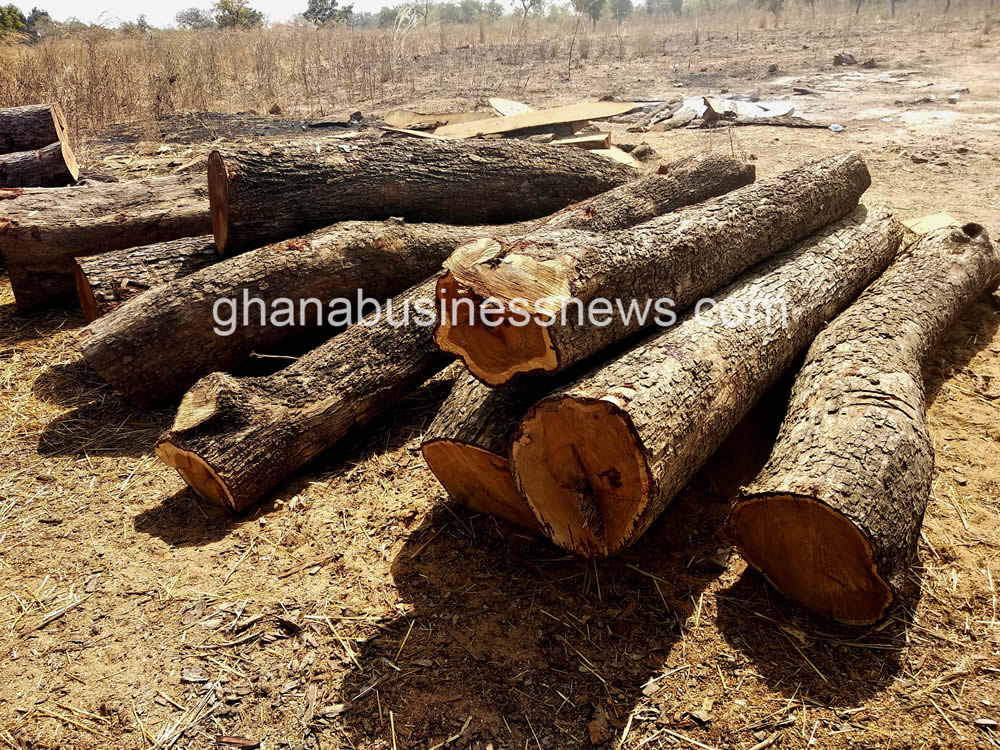
Henceforth, all confiscated rosewood would be burnt to serve as a deterrent to others engaging in its exploitation, the Chief Executive Officer (CEO) of the Forestry Commission (FC), Mr Kwadwo Owusu Afriyie has warned.
Addressing a news conference in Accra last Wednesday, Mr Afriyie said the Commission normally sought court orders to auction the confiscated rosewood to the public but its exploitation had not stopped and therefore burning the wood was the most viable option to adopt.
Harvesting, transportation and exportation of the tree species were banned by the Ministry of Lands and Natural Resources in March 2019 this year to protect it against indiscriminate exploitation, but the situation still persist despite all efforts by the management of the Forestry Commission to nib the situation in the bud.
Mr Owusu Afriyie refuted allegations of corruption levelled against the Commission regarding the issuance of illegal permits for the exportation of processed rosewood to China.
The Commission had been accused of engaging in a high level of corruption and collusion on rosewood poaching and exportation to China by the Environmental Investigation Agency (EIA), a United States based organisation.
The EIA estimated that since 2012 over 540,000 tonnes of rosewood, equivalent of 23,478 20ft containers which was approximately six million trees were illegally harvested and exported to China while the ban was still in place.
"It is important that the commission comes out to set the record straight and correct the misinformation about the rosewood issue in the public domain", the CEO of the Commission stated.
He said official report from the Commission on Timber and Wood products export indicated that from 2012 to May 2019, a total of 300,368.94 cubic metres of rosewood equivalent to 257,230 trees had been exported and not six million trees as alleged by the EIA.
The Chief Executive Officer said it was not true that six million trees had been cut and exported when even the whole trees in the country's forests put together would not reach that figure, adding that Upper East, Upper West, the Northern, as well as the former Brong Ahafo and the Volta regions, together were less than 300,000 trees that have been harvested with available records.
He expressed surprise that the EIA which conducted the undercover investigations did not take steps to contact Nana Adu Nsiah of the Forestry Commission on the bribery allegation levelled against him and denied that he took bribe before issuing Convention on International Trade in Endangered Species (CITES).
"The FC does not take bribe before issuing CITES, a system of permits and certificates which regulate international trade which must be presented when leaving and entering a country", Mr Owusu Afriyie said.
He indicated that from 2011 to 2017, anybody who dealt in rosewood trade and export did not need CITES to export the product and that it officially became operational in 2018 when one needed to be granted it before exporting the wood.
He explained that it was in 2009 that the Ministry of Lands and Natural Resources granted permit to five companies to remove all trees including economic trees in the Bui Dam reservoir to make way for the construction of the dam.
Also rosewood trees that were within the road corridor, during the construction of the Bole-Fufulso Sawla road, Mr Owusu Afriyie said, were removed and a salvage permit was issued to salvage rosewood trees already felled.
He said at the moment the commission has established a total of 33.8 hectares of rosewood plantation trials in eight forest districts across the country, comprising of 19,000 rosewood seedlings.
Read Full Story















Facebook
Twitter
Pinterest
Instagram
Google+
YouTube
LinkedIn
RSS